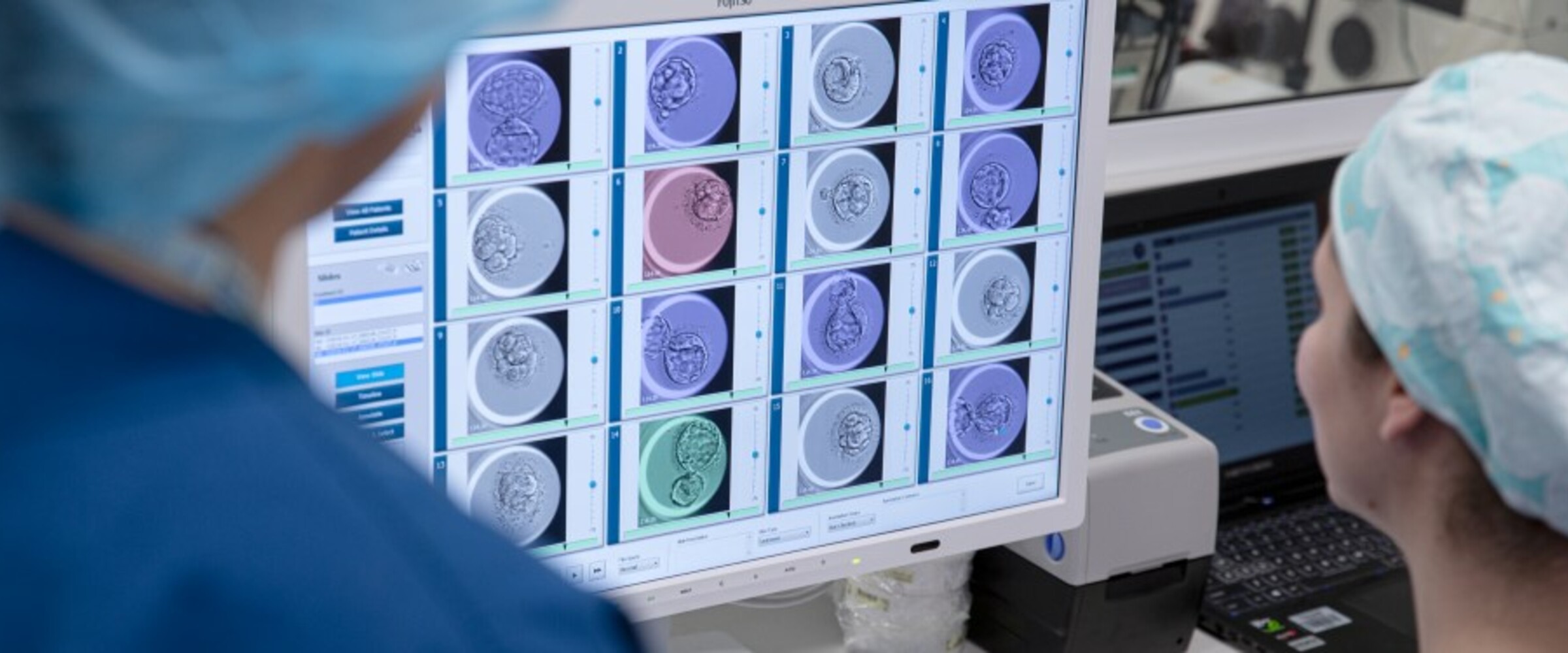
How artificial intelligence is improving IVF outcomes
It may sound like science fiction, but artificial intelligence is here – and it’s being used to improve IVF outcomes.
So, what exactly is artificial intelligence, and how is it being used in IVF?
Simply put, AI is a computer algorithm or robot that can be used to carry out tasks that a human would do. From Siri to autocorrect, facial recognition or google maps, AI is increasingly becoming utilised in everyday life.
In 2019, scientists at Virtus Health, together with Harrison.ai, developed a revolutionary AI embryo selection software. This innovative technology was able to tell an embryologist which embryos are most likely to grow into a healthy baby. Virtus Health was the first IVF provider to use this in clinical practice in Australia. Since then, the system has been further developed by Vitrolife and is now iDAScore, the leading AI system for embryo selection in the world.
A/Prof Peter Illingworth, Medical Director at IVFAustralia, explains:
“Many patients who are undergoing IVF or about to start a cycle may be wondering, ‘if there are multiple embryos that develop, how do they choose which one to transfer?’ This technology gives embryologists a new tool to confidently select the ‘best’ embryo, based on thousands of data points analysed by iDAScore."
- A/Prof Peter Illingworth
When embryos are grown in the lab, incubators called ‘EmbryoScopes’ are fitted with built-in cameras which generate thousands of images of each embryo. The AI technology selects the embryo most likely to develop into pregnancy by assigning each embryo an embryo score after evaluating these data points.
What are the potential benefits for people undergoing IVF?
The ultimate goal is to help people become pregnant as quickly as possible. And while some fertility factors cannot be controlled, such as the quality of eggs or sperm, IVF laboratories have the ability to optimise the environment of those eggs and sperm as they become embryos, to give patients the best possible chance of having a baby.
The EmbryoScope+ incubator in combination with the innovative AI technology provides a protected environment as the embryos develop, as well as enabling the scientists to choose the best embryo to transfer.
A/prof Peter Illingworth explains:
“Scientists believe they have found a way to shorten the time frame to a successful IVF pregnancy by using AI. All of this is being done to help patients get the best possible care, improve outcomes of pregnancies, and enhance providers’ expertise."
There are four key benefits of the EmbryoScope+ and AI technology in IVF:
- Reduced handling: Scientists can review the development of embryos at any point in time without removing them from their safe incubator environment. Every patient even has their own individual cartridge which can hold up to 16 embryos, which means the embryos are not disturbed when checking other patients’ embryos.
- More monitoring: Scientists can analyse more than 7200 minutes of an embryo’s development compared with the standard 6-10 minutes.
- Better embryo selection: By obtaining accurate, in-depth data combined with an artificial intelligence system, scientists can now use selection and de-selection criteria to try and identify the best embryo for transfer.
- Optimal conditions: Embryos are constantly kept at optimal temperature and pH conditions, mimicking the conditions of a natural pregnancy.
And the best part? The sophisticated AI tool is self-learning. Meaning, it will continue to analyse the vast amounts of data over time to continually improve its accuracy.
The system can review a massive amount of data, far more than any human could ever process, including thousands of images from each embryo. The growth patterns from these images are then related to whether each embryo developed into an ongoing pregnancy.
The predictive success of the artificial intelligence system was tested by repeating the comparison against the outcomes of a separate group of embryos. The results showed a predictive value that is a significant improvement on any system that had previously been used in human embryology.
Peter shares:
“Excitingly, in initial studies, the technology has correctly identified with 93% accuracy whether a particular embryo will progress to a fetal heartbeat, using more than 10,000 embryos from 1,603 patients aged between 22 and 50 (7.3 million images have been analysed).”
Leading the way: the future of artificial intelligence in IVF
Virtus Health is continuing to investigate the impact of iDAScore on patient care, and more research is being conducted. The study, known as the VISA study, attempts to understand how this affects conception rates, with patients randomly selected to either have their embryos picked by the embryologist or by the iDAScore system.
"Many other technologies, if not all, that the IVF scientific community has been using over the past two decades, have been outranked by iDAScore’s predictive value. It’s exciting to see that the AI technology we helped create is now being used by IVF clinics across the world. We are proud to be a leader in the field of assisted reproductive technology, and as this technology continues to be adopted, we look forward to seeing improved patient outcomes across the industry."
- A/Prof Peter Illingworth
Looking for help to grow your family? Request an appointment via the form below to consult with a fertility specialist in your area.
